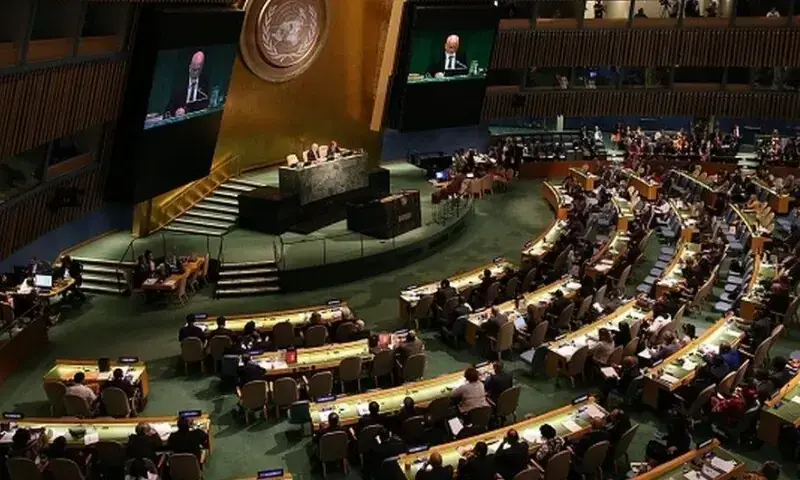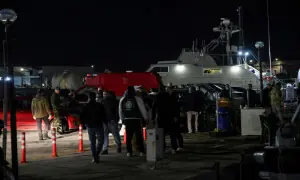US visa ban on Palestinian delegation sparks global outcry
The United States’ refusal to grant visas to the Palestinian delegation for the upcoming United Nations General Assembly session has triggered international outcry and calls to relocate a key diplomatic conference on the Israel-Palestine conflict from New York to Geneva.
The White House, under President Donald Trump’s second term, has denied travel visas to Palestinian Authority (PA) President Mahmoud Abbas and 80 other officials who were scheduled to attend the UN General Assembly, which begins on Tuesday.
The unprecedented move could potentially derail one of the most significant diplomatic opportunities for Palestine since the Oslo Accords a one-day conference at which several countries, including the UK, France, Canada, and Australia, are expected to consider formal recognition of a Palestinian state under certain conditions.
In protest, European leaders including Danish MEP Per Clausen have proposed temporarily relocating the conference to the UN’s Geneva headquarters to ensure Palestinian representation and to issue a symbolic rebuke to Washington’s actions. “This is about upholding international norms and resisting political interference in global diplomacy,” Clausen said.
The visa denial extends beyond the Palestinian delegation, with speculation growing that the US may also block entry to diplomats from Brazil, Iran, Sudan, and Zimbabwe, citing anti-terrorism laws.
If confirmed, such a blanket ban would mark a significant departure from diplomatic precedent and could deepen global tensions over Washington’s approach to multilateral diplomacy.
In 1988, the US barred PLO leader Yasser Arafat from attending a UN session. However, this year’s sweeping ban is broader, encompassing an entire national delegation.
The Palestinian ambassador to the UN, Riyad Mansour, confirmed that President Abbas had planned to deliver a key address during the high-level General Debate on September 23 and attend a separate summit on the two-state solution, co-chaired by France and Saudi Arabia on September 22.
According to reports, a group of countries is expected to officially recognize the State of Palestine during that meeting, with Abbas set to affirm the PA’s commitment to a peaceful resolution with Israel and pledge reforms in Palestinian leadership.
The US State Department, defending its decision, stated last month that it is in America’s “national security interests” to hold the Palestinian Liberation Organisation (PLO) and the PA accountable for “failing to repudiate terrorism” and for “undermining peace efforts” through international legal campaigns.
The statement accused both entities of contributing to the breakdown of the Gaza ceasefire and Hamas’s refusal to release hostages.
The controversy also raises concerns about potential fallout with other nations. Brazil, whose President Luiz Inácio Lula da Silva is traditionally the first speaker at the General Assembly’s opening session, may also face restrictions.
Trump has been openly critical of Lula, particularly due to the prosecution of Trump ally and former Brazilian President Jair Bolsonaro, who faces charges related to an attempted coup.
The incident touches on longstanding debates over the 1947 UN Headquarters Agreement, which obligates the U.S. to allow diplomatic access to the UN.
While Washington retains the right to restrict visas on grounds of security or foreign policy, this latest move is being interpreted by many as politically motivated and potentially damaging to the credibility of the United Nations as a neutral platform for diplomacy.
Palestine, currently an observer member of the UN, is entitled to attend and speak at sessions but does not have voting rights. Advocates argue that barring its representatives from entry undermines not just Palestinian participation but the very principles of international diplomacy.
Calls are mounting for a swift response from the UN leadership and member states to preserve the integrity of the diplomatic process.
For the latest news, follow us on Twitter @Aaj_Urdu. We are also on Facebook, Instagram and YouTube.

























Comments are closed on this story.